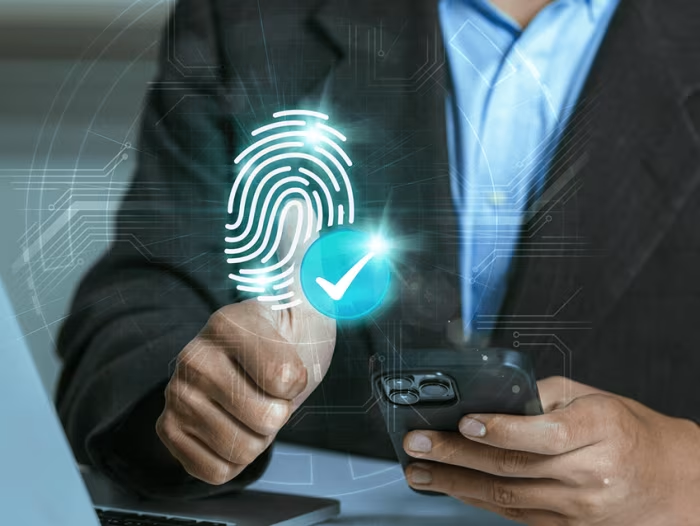Resource / Online Journal
The Significance of Identity Security for Remote Workers
This article explores the critical aspects of identity security for remote workers and provides practical solutions to safeguard digital identities in a remote work environment.
Published on Jul 9, 2024

In the digital age, where remote work has become the norm rather than the exception, identity security for remote workers is paramount. As organizations embrace the flexibility and convenience of remote work, they must also address the associated cybersecurity challenges. TechDemocracy is committed to helping businesses navigate these challenges, ensuring remote workers can operate securely and efficiently. This article explores the critical aspects of identity security for remote workers and provides practical solutions to safeguard digital identities in a remote work environment.
The Rise of Remote Work and Its Security Implications
The COVID-19 pandemic accelerated the adoption of remote work across various industries. While this shift has brought numerous benefits, it has also exposed businesses to increased cybersecurity risks. Remote workers often access corporate networks and sensitive data from various locations and devices, making it more challenging to maintain robust security controls. Cybercriminals are quick to exploit these vulnerabilities, leading to a surge in cyberattacks targeting remote workers.
Understanding Identity Security
Identity security is the practice of protecting digital identities from unauthorized access and fraudulent activities. In a remote work setting, this involves safeguarding the credentials and personal information of employees who access corporate resources remotely. Effective identity security measures are crucial to prevent data breaches, phishing attacks, and other cyber threats that can compromise an organization's integrity.
Key Challenges in Identity Security for Remote Workers
1. Phishing Attacks
Phishing attacks remain one of the most prevalent threats to remote workers. Cybercriminals use deceptive emails, messages, and websites to trick employees into revealing sensitive information, such as login credentials and personal details. Remote workers, who may not have immediate access to IT support, are particularly vulnerable to these attacks.
2. Weak Passwords
Despite the importance of strong passwords, many employees continue to use easily guessable passwords for convenience. Weak passwords can be easily cracked by hackers, granting them access to corporate systems and sensitive data.
3. Unsecured Devices and Networks
Remote workers often use personal devices and public Wi-Fi networks to access corporate resources. These devices and networks may lack the necessary security measures, exposing the organization to potential cyber threats.
4. Lack of Multi-Factor Authentication (MFA)
Relying solely on passwords for authentication is no longer sufficient. Without multi-factor authentication (MFA), organizations are at greater risk of unauthorized access, as cybercriminals can easily compromise passwords through various means.
Solutions to Enhance Identity Security for Remote Workers
1. Implement Strong Password Policies
Encouraging employees to use strong, unique passwords is the first step in bolstering identity security. Passwords should combine upper- and lower-case letters, numbers, and special characters. Additionally, employees should be required to change their passwords regularly and avoid reusing passwords across multiple accounts.
2. Enable Multi-Factor Authentication (MFA)
MFA adds an extra layer of security by requiring users to verify their identity through multiple means, such as a password and a one-time code sent to their mobile device. This significantly reduces the risk of unauthorized access, even if a password is compromised. TechDemocracy recommends implementing MFA across all critical systems and applications.
3. Conduct Regular Security Training
Educating employees about the latest cybersecurity threats and best practices is essential. Regular security training sessions can help remote workers recognize phishing attempts, understand the importance of strong passwords, and learn how to secure their devices and networks. TechDemocracy offers comprehensive training programs tailored to the needs of remote workers.
4. Use Virtual Private Networks (VPNs)
A VPN encrypts the internet connection, ensuring that data transmitted between remote workers and corporate networks is secure. By using VPNs, organizations can protect sensitive information from being intercepted by cybercriminals on unsecured networks. TechDemocracy provides reliable VPN solutions to safeguard remote connections.
5. Implement Endpoint Security Solutions
Endpoint security solutions, such as antivirus software and firewalls, protect remote devices from malware and other cyber threats. These solutions should be regularly updated to defend against the latest security vulnerabilities.
6. Monitor and Manage Access Controls
Organizations should implement robust access control measures to ensure that employees only have access to the information necessary for their roles. Regularly reviewing and updating access permissions can prevent unauthorized access and reduce the risk of insider threats.
7. Utilize Identity and Access Management (IAM) Solutions
IAM solutions streamline the process of managing user identities and access permissions. These solutions enable organizations to enforce security policies, monitor user activities, and quickly respond to potential security incidents. TechDemocracy's IAM services offer a comprehensive approach to identity security, tailored to the unique needs of remote work environments.
8. Implement Zero Trust Security Model
The Zero Trust security model operates on "never trust, always verify." This approach requires continuous verification of users and devices, regardless of their location. Organizations can ensure that only authenticated and authorized users can access sensitive resources by implementing a zero-trust model.
Conclusion
As remote work continues to shape the modern workplace, identity security remains a critical concern. Organizations must proactively address the security challenges associated with remote work to protect their digital assets and maintain business continuity. By implementing strong password policies, enabling multi-factor authentication, conducting regular security training, and leveraging advanced security solutions, businesses can significantly enhance their identity security posture.
TechDemocracy is your trusted partner in navigating the complexities of identity security for remote workers. Our comprehensive solutions and expert guidance empower organizations to safeguard their digital identities, ensuring a secure and resilient remote work environment. Embrace the future of work with confidence, knowing that your identity security is in capable hands with TechDemocracy.
Recommended articles


How to Enhance Identity Security with IAM Solutions
Take Your Identity Strategy
to the Next Level
Strengthen your organization's digital identity for a secure and worry-free tomorrow. Kickstart the journey with a complimentary consultation to explore personalized solutions.